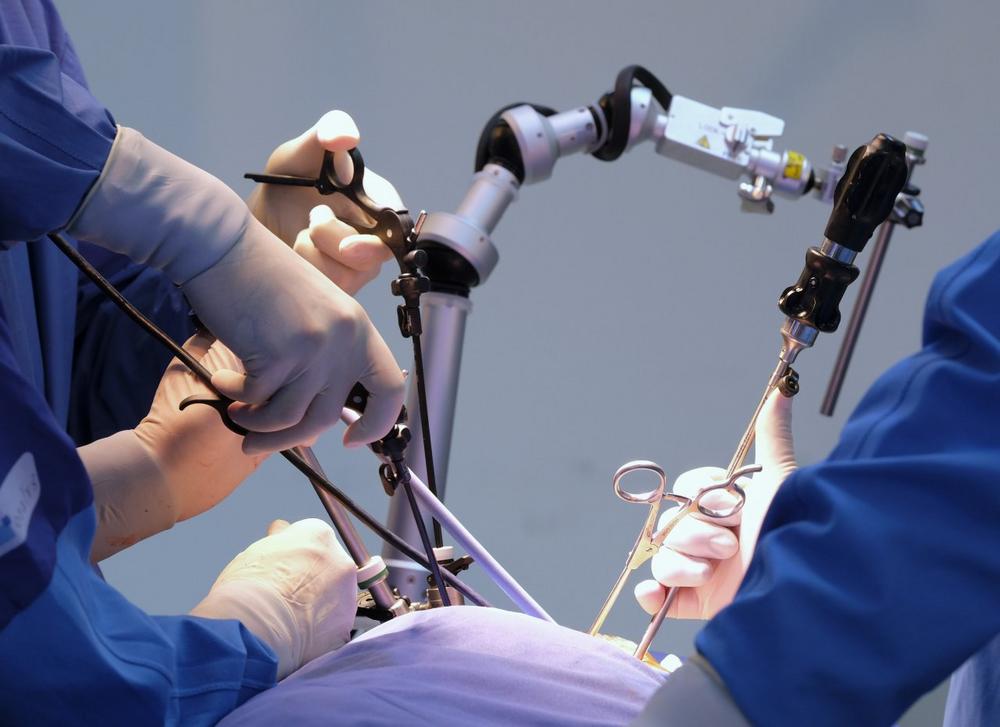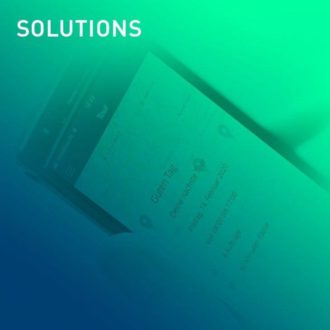
„Pioneers of cutting-edge healthcare“
Huge volumes of data are collected for medical reasons in every hospital. It is stored in various archive systems and often in an unstructured way, whether paper copies of letters from doctors or test results and laboratory findings in PDF format. AIQNET centres on using artificial intelligence (AI) for the automated procurement, structuring and analysis of this data. The overall project is being coordinated by BioRegio STERN Management GmbH, which is based in Stuttgart, while it was Leipzig-based RAYLYTIC GmbH that initiated the work and is leading the consortium.
"The objective is to identify high-risk patients as early as possible and give medics the opportunity to query risks at the touch of a button. This then makes it possible to minimise conceivable complications from surgery, and treatment is improved objectively and subjectively," explains Prof. Andreas Nüssler, director of the Siegfried Weller Institute for Accident Medicine (SWI). One of the areas being studied by the research institute – part of BG Hospital Tübingen – is the correlation between various secondary conditions affecting patients and their impact on outcomes.
The researchers are working in partnership with medtech company Aesculap AG and have chosen knee implants as the use case for AIQNET, because the link between implant risks and secondary conditions can be easily tracked. "The surgeon needs to decide which implant is most suitable for a certain type of patient," Prof. Nüssler points out. "This decision is easier to make if secondary conditions are systematically recorded. It all comes down to comorbidity. We anticipate that AI – if trained appropriately – will itself conclude, based on the collated patient data, that a particular patient has a particular problem. That could be an increased risk of malnutrition, for instance, which affects up to 25 per cent of patients, and up to 40 per cent in geriatric trauma surgery. A suitable course of action can then be devised with similar precision." After all, despite outstanding surgical technology and the best implants, patients do not all have the same recovery chances. If, for example, patients have diabetes, they are at a high risk of developing a diabetic osteopathy, which means they are at a similarly high risk of complications if they require a knee implant. "With over 10,000 operations a year at BG Hospital Tübingen, this adds up to a large number of risk factors that patients bring with them from home," says Prof. Nüssler. To date, all findings are the result of exhaustive clinical studies. AIQNET has been designed to make it easier to draw useful findings from this data.
Ethical considerations and data protection laws are crucially important to Prof. Nüssler: "Hospitals do a huge amount of work to comply with statutory regulations, operate IT security systems and explain to patients that they can make their data available. We need to make it clear to them that they themselves benefit from this the most." According to the project team, AIQNET offers an opportunity for AI to facilitate real progress in the interest of patients. That is why the digital ecosystem is reportedly one of the key projects at BG Hospital Tübingen. "We see ourselves as pioneers of cutting-edge healthcare", declares Prof. Nüssler.
AIQNET is a digital ecosystem that enables the use of medical data across sectors and in compliance with data protection regulations. The entire project is coordinated by BioRegio STERN Management GmbH, Stuttgart. Initiator and consortium leader is RAYLYTIC GmbH, based in Leipzig.
The consortium of 16 established medical technology and healthcare companies won the German government’s Al petition in 2019 under the project acronym "KIKS". The project is funded by the Federal Ministry for Economic Affairs and Energy. Since January 2020, the project partners have been developing the technical infrastructure and its applications. The focus is on structuring data using artificial intelligence and creating a legally secure framework. In the future, for example, the performance and safety of medical devices can be measured objectively and largely automatically. Administrative tasks of healthcare, e.g. documentation, can be handled by relevant applications. A special feature of the project is the close cooperation between industry, research and healthcare.
By providing access to technical and scientific data with great depth, the ecosystem offers future partners the opportunity to develop their own health applications at low cost and to benefit from the legally secure, validated framework of AIQNET.
AIQNET
Petersstr. 32-34
04109 Leipzig
Telefon: +49 711 870354 23
http://www.aiqnet.eu
BioRegio STERN Management GmbH
Telefon: +49 711 870354-23
E-Mail: reutter@bioregio-stern.de
![]()





